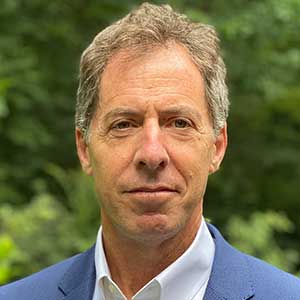George Mason University’s Edward Maibach has been a busy man as of late, and his efforts in the fight against global climate change haven’t gone unnoticed.
Maibach, a University Professor in Communication and the director of Mason’s Center for Climate Change Communication, recently received a $250,000 grant from the Kresge Foundation for the Medical Society Consortium on Climate Health to organize, empower and amplify the voices of America’s doctors to best convey how climate change is harming our health and how climate solutions will improve it. The consortium includes 30 medical society members and 55 partner health organizations.
“For the past five years, we’ve worked to mobilize the voice of America’s doctors to clearly articulate that climate change isn’t about plants, penguins, and polar bears,” Maibach said. “It’s about people, too. It’s about our health. In a very real sense, we have skin in the game of climate change—our own skin. Who better to explain that to anybody who will listen than America’s doctors?”
Mason’s Mona Sarfaty, the director of the Program on Climate and Health within the Center for Climate Change Communication, serves as the executive director for the consortium.
The grant is just the latest accolade for Maibach, who had previously been announced as a co-recipient for the 10th annual Stephen H. Schneider Award for Outstanding Climate Science Communication. Maibach will share the honor with Yale University’s Anthony Leiserowitz when the two men are formally recognized during a virtual ceremony on Jan. 13.
The $15,000 award, which was established in honor of Stephen Henry Schneider, one of the founding fathers of climatology, is given to a natural or social scientist “who has made extraordinary scientific contributions and communicated that knowledge to a broad public in a clear and compelling fashion,” according to the press release.
The award’s jurors decided that Maibach and Leiserowitz exemplified the rare ability to simultaneously be both superb scientists and powerful communicators in the mold of Schneider.
“No one has done more to help us understand how the American people understand climate change than Tony Leiserowitz and Ed Maibach,” said juror Naomi Oreskes. “Their work has set the standard for social scientific investigations of what Americans think about climate change and why they think it.”
Maibach has focused exclusively on climate change as the world’s most pressing threat to public health and well-being since 2007. He played a critical role in the formation of the Yale/Mason Climate Change in the American Mind survey project that has consistently been featured in numerous major media outlets throughout the country for more than a decade.
“It’s a thrill in every way,” he said of the honor. “It’s particularly a thrill to be winning this award with Tony Leiserowitz, whom I’ve been working with so closely since day one of creating our center here at Mason. So the work I have done is really the work we have done and, thus, winning this award is a double thrill.”
The Stephen H. Schneider Award is presented by Climate One, a project of the Commonwealth Club of California, a nonprofit and nonpartisan public forum founded in San Francisco in 1903.

